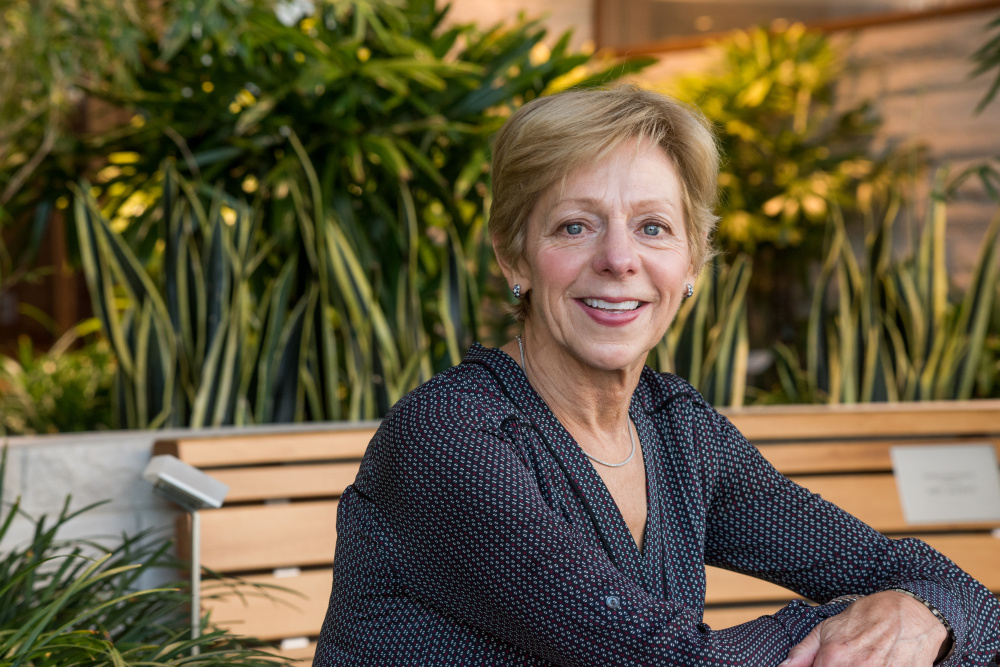
By Theresa Sullivan Barger
After triathlete Betsy Feldmann felt pressure in her abdomen while running, which seemed “as if her insides were slipping,” she saw four doctors before being diagnosed with stage II-C ovarian cancer.
Feldmann chose an aggressive approach recommended by Ursula Matulonis, MD, medical director of Gynecologic Oncology at the Susan F. Smith Center for Women’s Cancers at Dana-Farber. The recommendation included a chemotherapy treatment three times stronger than standard chemotherapy – one that has been shown, in stage III patients, to extend life by an average of 16 months.
“I had three or four triathlons scheduled for that summer,” Feldmann says. Her medical team didn’t place restrictions on her exercise routine, so she continued swimming, biking, walking, and a little running, as long as she felt up to it. “My goal was to do as much as I could,” reflects Feldmann, a married mother of three who was 58 when diagnosed.
Feldmann’s intensive treatment involved receiving the drugs cisplatin and Taxol through a method called IP/IV combined chemotherapy. One drug is delivered directly into the abdomen (intraperitoneal) where it attacks the cancer, and the other is given intravenously (in Feldmann’s case, through a port in her chest).
When Feldmann broke out in hives and discovered she was allergic to Taxol, her medical team didn’t miss a beat. Feldmann was taken to a desensitization unit at Dana-Farber, where, under close watch, she received Taxol in a highly diluted, slower drip, just as people with food allergies are given tiny amounts to help them build up a tolerance.
Read More:
“My nurses were really, really careful,” she recalls.
Diet also helped Feldmann maintain her quality of life. As soon as she reported a queasy stomach, her nurse Catherine Earley, NP, connected her with a dietitian at Dana-Farber. “My dietitian suggested remedies for any issues I had,” Feldmann says, such as putting her on smart water and sugar-free Gatorade when her magnesium and potassium levels dipped.
“Betsy continued training throughout her treatment,” Early explains. “Her experience shows that exercise can help keep your muscles in shape and counteract some of the fatigue.”
When treatment ended, Feldmann won first place in her age group in a sprint triathlon. She also participated in the Pan Mass Challenge by riding the 188-mile route from Sturbridge to Provincetown. And, last summer, to help prove to skeptical Bostonians that the water is clean and safe for swimming, she competed in a mile-long swim in the Charles River.
